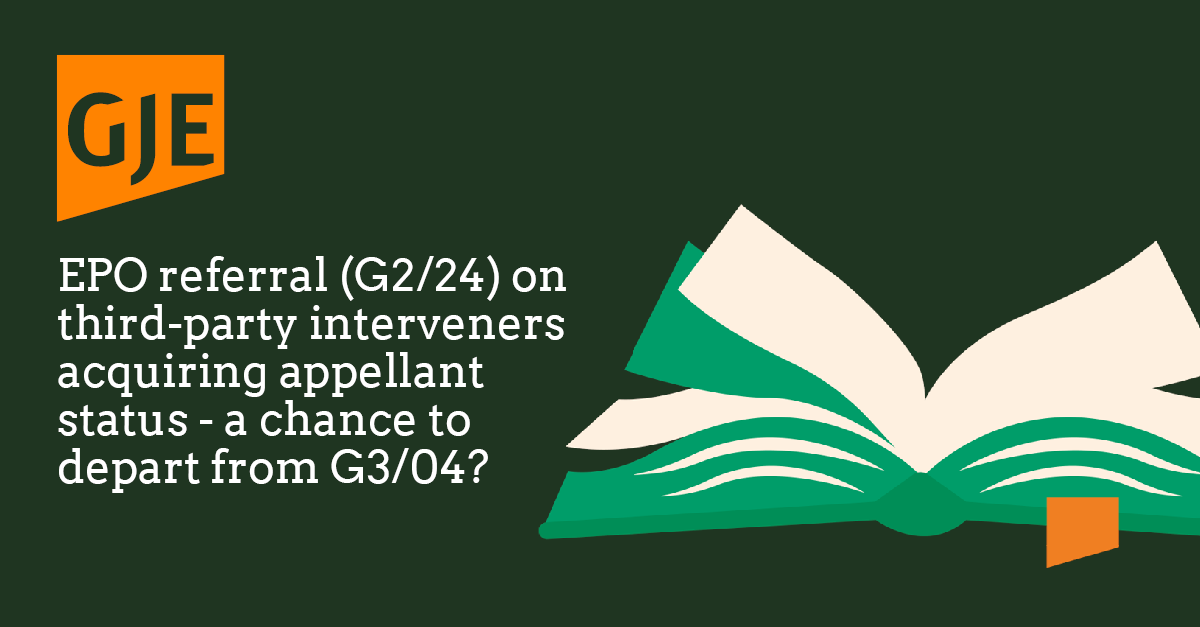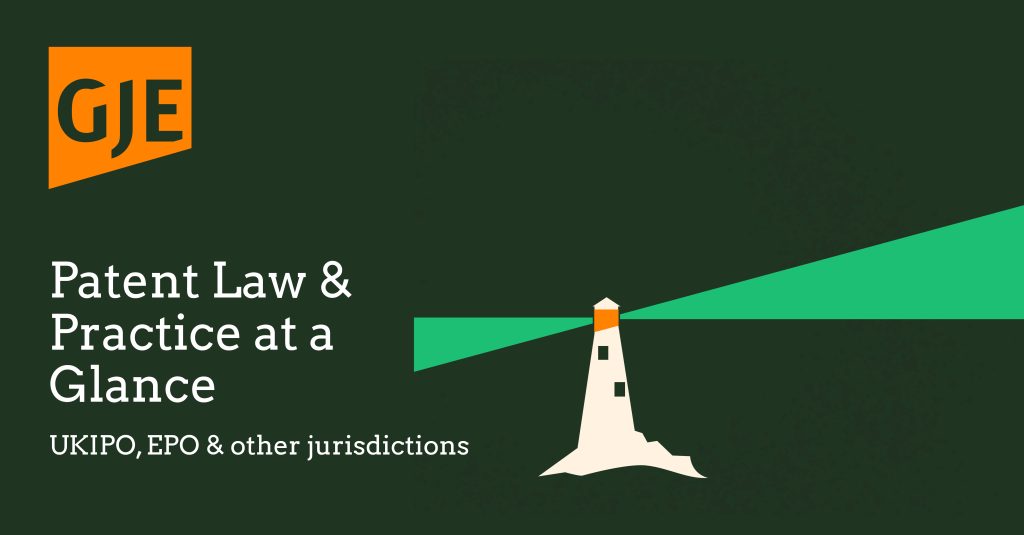
In European Patent Office (EPO) opposition proceedings, a company accused of patent infringement has the right to intervene. Under current EPO law, appeal proceedings are terminated if all appeals are withdrawn, even if a company that intervened at the appeal stage wishes to continue the case. In T 1286/23, related to European patent 2941163, the Board of Appeal has questioned this approach and referred the matter to the Enlarged Board of Appeal for consideration. This marked the second referral of 2024, posing the following key question:
“After withdrawal of all appeals, may the proceedings be continued with a third party who intervened during the appeal proceedings? In particular, may the third party acquire an appellant status corresponding to the status of a person entitled to appeal within the meaning of Article 107, first sentence, EPC?”
The Enlarged Board has accepted the case as G 2/24 and invited stakeholders and the President of the EPO to provide comments by 17 April 2025. Below, we analyse the referral and consider the potential implications if the question is answered in the affirmative.
Background
European patent 2941163, owned by Foreo AB, covers an oscillating handheld skin cleanser. Beurer GmbH opposed the patent on grounds of novelty, inventive step, and added matter. Meanwhile, Foreo sent a warning letter to Geske GmbH & Co. KG alleging patent infringement and threatening legal action. Geske attempted to intervene in the EPO opposition proceedings, but the Opposition Division deemed the intervention inadmissible, as no infringement or non-infringement action was pending at a national court. To rectify this, Geske initiated a non-infringement action (“negative Feststellungsklage”) in Germany’s Düsseldorf District Court (DDC). However, under German law, an action is pending only upon receipt by the defendant which had not happened at that time. As a result, Geske’s second intervention was also deemed inadmissible. Hence, the only parties at the first instance hearing on 10 March 2023 were Foreo and Beurer. The patent was upheld in an amended form with the Opposition Division’s written decision issued on 9 May 2023, which Beurer appealed.
It was not until after the 9 May 2023 decision that Geske’s German suit was dispatched to Foreo in Sweden. Proceedings at the DDC were considered pending on 23 June 2023, and Geske successfully intervened at the appeal stage on 15 August 2024, with an appeal against the Opposition Division’s decision. On 13 February 2024, the three parties were summoned to oral proceedings to be held on 27 June 2024, however, Beurer then withdrew their appeal.
The Board were seemingly unconvinced that termination of proceedings should be the inevitable outcome, and continued with the hearing to address the question of whether Geske should be considered an appellant in their own right.
The right of interveners to continue appeal proceedings
This case hinges on the status of a third party following their intervention at the appeal stage. In G 3/04, the Enlarged Board determined that interveners only acquire the status of an opponent, irrespective of whether the intervention occurs at the first instance or during appeal proceedings. Under this precedent, if the sole appeal is withdrawn, proceedings cannot continue with a third-party who intervened during the appeal proceedings.
In their referral, the Board presented their interpretation of the European Patent Convention (EPC) in relation to the appeals process. They agreed with G 3/04 in that a person entitled to appeal a first instance decision must be a party to the proceedings that led to the appealable decision (in accordance with Article 107 EPC, first sentence). To maintain consistency, they extended this rationale to non-appealing parties being parties ‘as of right’ only if they took part in first instance proceedings (in accordance with Article 107 EPC, second sentence). In doing so, the Board concluded that an intervener at the appeal stage cannot become any type of party to appeal proceedings under Article 107 EPC, as they were not a party to the first instance proceedings. This directly contradicts G 3/04.
Instead, the Board supported the view that as the intervener has not previously been a party to proceedings, their participation in the appeal should not be limited by Article 107 EPC. They proposed that an intervener at the appeal stage should have an unfettered right to raise new grounds of opposition and to introduce new documents. This means that the intervener would not be limited to reviewing the first instance decision. This is consistent with G 1/94 in which the Enlarged Board suggests that, when faced with an intervener at the appeal stage, it may be appropriate to remit the case to the Opposition Division.
The referring Board has emphasised that the legislative intent behind the EPC supports the right of intervention in cases of threatened infringement, even if such intervention occurs “out of time” at the appeal stage. They believe that a third-party’s entitlement to intervene is based upon proceedings extraneous to the EPO, namely the threat of national court proceedings, and that this creates a legal interest in the EPO opposition that should apply equally at the appeal stage. The Board therefore support the intervener having the freedom to adopt any suitable role, such as an appellant.
It is noted that the current approach governed by G 3/04 creates inequities for parties unable to intervene in time due to procedural delays or jurisdictional inconsistencies. As seen in the present case, German law governing pendency of actions and a court’s three-month delay in dispatching a claim resulted in Geske being unable to intervene in the first instance.
Potential implications
If the Enlarged Board agrees with the referring Board, this decision could significantly enhance the rights of interveners in EPO appeal proceedings:
- Continuation of proceedings: interveners at the appeal stage could continue proceedings even if all original appellants withdraw their appeals.
- Confirmation of expanded scope for interveners: interveners may have broader rights than opponent-appellants to present new arguments, grounds for opposition, and supporting evidence.
- Strategic considerations: the timing and jurisdiction of court actions in Europe could be influenced by the knowledge that interveners are able to continue appeals on their own, and that they may introduce new arguments, grounds, and evidence.
- Settlement dynamics: patentees may need to negotiate with interveners as well as original appellants to terminate appeal proceedings.
Conversely, the Enlarged Board may reaffirm the principles set out in G 3/04, maintaining the current limitations on interveners at the appeal stage. However, the Enlarged Board’s acceptance of the referral and its request for comments from stakeholders and the President of the EPO strongly suggests a willingness to depart from existing precedent.
We will closely monitor developments and provide updates on the Enlarged Board’s decision in G 2/24.
This article was first published on IPKat.


